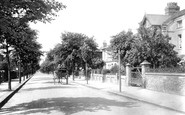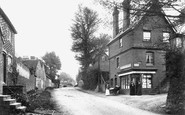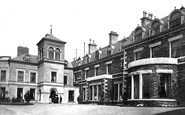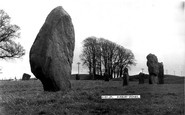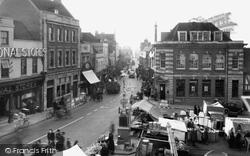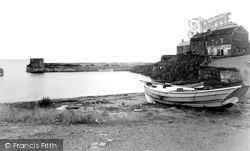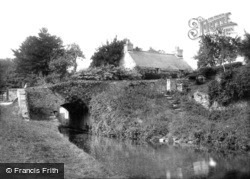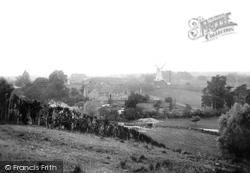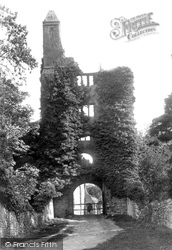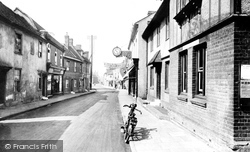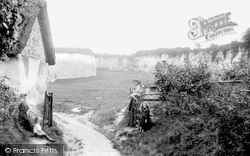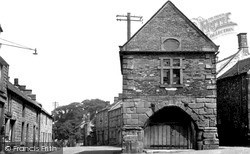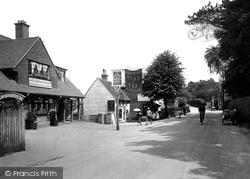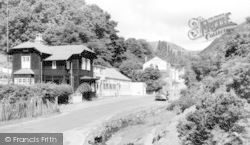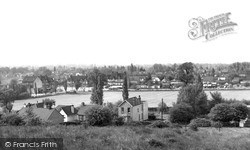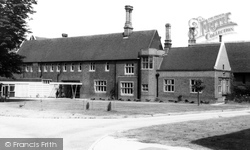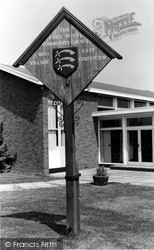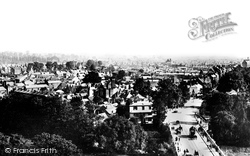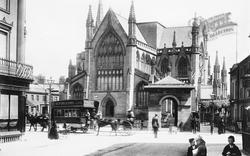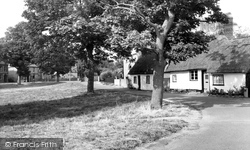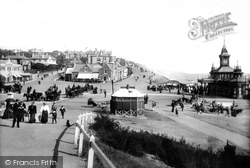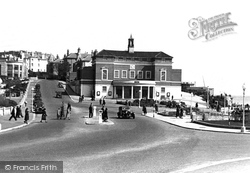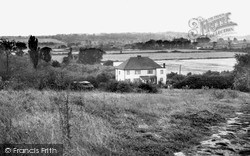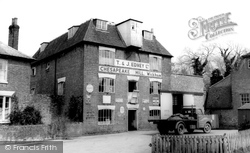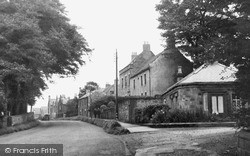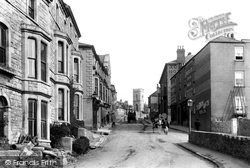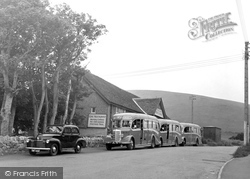Places
18 places found.
Those places high-lighted have photos. All locations may have maps, books and memories.
- Hythe, Kent
- Hythe, Hampshire
- Small Hythe, Kent
- Bablock Hythe, Oxfordshire
- Methwold Hythe, Norfolk
- Hythe, Somerset
- Hythe, Surrey
- Hythe End, Berkshire
- The Hythe, Essex
- Egham Hythe, Surrey
- West Hythe, Kent
- New Hythe, Kent
- Broad Street, Kent (near Hythe)
- Horn Street, Kent (near Hythe)
- Newbarn, Kent (near Hythe)
- Newington, Kent (near Hythe)
- Broad Street, Kent (near Hythe)
- Stone Hill, Kent (near Hythe)
Photos
360 photos found. Showing results 921 to 360.
Maps
101 maps found.
Books
10 books found. Showing results 1,105 to 10.
Memories
4,406 memories found. Showing results 461 to 470.
The Happiest Days Of Your Life
Brambletye school, well set between the beautiful Ashdown Forest and thriving town of East Grinstead on the Sussex/Surrey border was a paradise on Earth for any schoolboy with an aesthetically romantic (!) ...Read more
A memory of Brambletye House in 1959 by
School
I went to Crulivig Public School, started there in 1950, had to walk 1 mile there and back during all seasons, there was no tarred road then. We were all happy there - I hope - taught by the late Cathie Nicholson from Lochs. Pity that ...Read more
A memory of Crulivig in 1950 by
George /Appleton Of Parc Braws
I have since discovered that Dr George was my great great grandfather. His son, George David A went to school in Helston and by the age of 16 he was in Australia - has anyone any knowledge of him? On his return he ...Read more
A memory of Lizard by
St. Mary's High School
I'm wondering if anyone remembers St. Mary's High School in Western Road. I attended the school when I was very young in 1946-9, before my family emigrated first to Canada, then to the USA. My best friends were Zena O'Shea, ...Read more
A memory of Romford in 1949
Nelson Crescent
I was born at 15 Nelson Cresent, Percy Main on 29 April 1952. I was the youngest of 5 children of my parents Henry and Edna May Lake. My sisters were Elizabeth Beryl, Patricia Heather, Veronica Norah and Edna May. I grew up at ...Read more
A memory of Wallsend in 1952 by
Moving To Whitefield
I moved to Whitefield from Birmingham just before my 5th birthday. We went to live on Hill Top Close. We lived at the last house and there was nothing but fields for miles. I went to school on the bus every morning as ...Read more
A memory of Whitefield in 1952 by
Northfields, Witley
As a child on holiday with my aunts, uncles and grandma who lived at Northfields (where the post office is situated by the main road), I would spend many happy times buying pens, pencils, notebooks etc. I remember a Mr Bannister used to run the shop then.
A memory of Witley in 1951 by
Windermere Hydropathic Hotel
This is the front entrance to the Windermere Hydropathic Hotel. During the Second World War it was the home of Ashville College of Harrogate, as they had been evacuated to Windermere as the school buildings in ...Read more
A memory of Windermere in 2011 by
The Day We Topped Out £12m New Leisure Centre In Wednesfield!
£12m Wednesfield Leisure Pool. It has been a very big week for both myself and Mary, we have attended 11 individual events as well as trying to hold the day jobs down! On Monday ...Read more
A memory of Wednesfield by
A Tour Around Prehistoric Stones At Avebury
Avebury is an interesting place to visit for history, archaeology and garden interests. My wife, Elizabeth, and I saw it on Sunday 24th April in bright hot sunshine when the stones are at their best; ...Read more
A memory of Avebury in 2011 by
Captions
4,899 captions found. Showing results 1,105 to 1,128.
By the late 17th century it was a prosperous market town.
By the late 17th century it was a prosperous market town.
It was paid for by the Craster family and built between 1906 and 1910 as a memorial to a member of the family, who appears to have died in Tibet.
When this picture was taken, the two had amalgamated and, in turn, had been taken over by the Great Western Railway. This is the entrance to Brynich Lock on the edge of Brecon.
However, the white smock windmill, built in 1869 by the Ashford millwright J Hill, still rises over the village roofs, and is of course now preserved.
Sherborne Castle was built on the site of the Saxon Bishops' Palace by the Norman warlord Roger of Caen. It has had many owners, including Sir Walter Raleigh.
developed over the years, but the village still presents a deceptively leafy appearance.The bakery and tea-rooms are reminders that many Londoners came on country outings to Chigwell, either by bus or by the
It is owned by the lord of the manor.
The 17th-century Old Market House at Winster was the first property to be acquired, in 1906, in the Peak District by the National Trust.
Judging by the sign (extreme left), it was hoped that the tea garden would bring in the customers.
Much of the Long Mynd is now managed by the National Trust.
The building that was originally the Railway Tavern is hidden by the tall tree on the right. Its mock-Tudor successor can be seen to the left.
The Diocesan Teacher Training College at Hockerill was started by the Rev Menet and the Rev Rhodes in 1852.
The swords on the county coat of arms are seaxes, the short swords or sword knives used by the Saxons, which may in fact have been straight rather than curved. The cutting edges face upwards.
When this picture was taken in the Victorian era, Cowley was a large village gradually being swallowed up by the suburbs of Oxford.
A horse-tram belonging to the Leamington & Warwick Tramway Co trundles by the parish church of All Saints. The church was built in the French-Gothic style between 1843-1869.
The green, on the far side of the village from the church and overlooked by the village school, is now enclosed with a low wooden fence.
Its advertisement boasted patronage by '...the Prince of Wales, King of the Belgians, the Empress Eugenie...and all the most distinguished personages visiting Bournemouth'.
By the 1950s the first high rise hotels had appeared; also, Bournemouth's old trams had given way to trolley-buses, hence the overhead lines.
At the top of the street, Church Road was already bisected by the arterial road to Southend.
Chesapeake Mill dates back to 1820 and was built by John Prior, a miller, partly of woodwork from an American warship of that name, captured by the much smaller British HMS 'Shannon' off Boston Harbour
At the Reformation the Church's mines were confiscated by the Crown, who then offered them on 99-year leases to Newcastle merchants.
When this photograph was taken, they were three discreet villages, overlooking the great naval base in one direction and being overlooked by the convict prison from the other.
By the 1950s Lulworth had become one of the most popular day excursions on the south coast, with cars and coaches jamming its narrow lanes.
Places (18)
Photos (360)
Memories (4406)
Books (10)
Maps (101)

